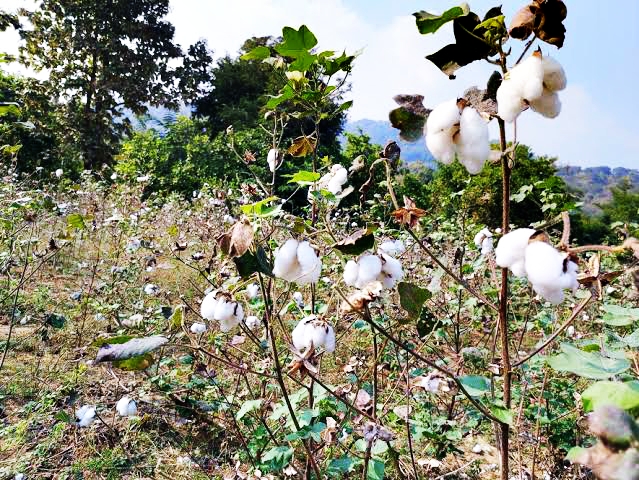Bhawanipatna: For the first time, cotton farmers in Kalahandi district must register before selling their produce in local mandis under a new regulation introduced by the Cotton Corporation of India Ltd. to enhance transparency and streamline marketing.
Unlike paddy, which requires registration through primary agricultural cooperatives or women’s self-help groups, cotton farmers previously sold their produce directly in mandis without any formalities.
Starting September 1, farmers can register via the ‘Kapas Kisan’ mobile app, with the registration process open until September 30, according to a letter received by the Regulated Market Committee (RMC).
Kalahandi leads Odisha in cotton production, with the fibre grown here considered among Asia’s finest.
The district’s annual cotton output is valued at over Rs 500 crore.
Last year, cotton was cultivated on 71,700 hectares, yielding 1,50,426 metric tonnes.
This year, cultivation has been expanded to 72,010 hectares. Despite this, the lack of infrastructure, such as spinning or weaving mills, has hindered the growth of ancillary industries, raising concern among farmers.
The district operates four RMC mandis, Kerlapada and Tuting under Bhawanipatna RMC, Uchhala under Junagarh RMC, and Utkela under Kesinga RMC.
The government-set minimum support price (MSP) for cotton is Rs 7,121 per quintal, but traders often pay higher prices for resale.
Kalahandi’s cotton is supplied to states like Maharashtra, Gujarat, Chhattisgarh, Andhra Pradesh and Tamil Nadu, where companies and brokers process it for domestic and international markets, reaping substantial profits.
The absence of local spinning or weaving mills has left Kalahandi lagging in industrialisation despite the abundance of raw material. Cotton cultivation in the district began around the government-established Konark Spinning Mill in Kesinga, which propelled Kalahandi to become the top cotton-producing region in the state.
However, the mill has since shut down. Bhawanipatna hosts Odisha’s only cotton research facility, the All India Cotton Research Programme, supporting varieties like Rash 569, Tulasi Takat, Kanak, Bandi, and Raja.
Although the state government has not approved BT cotton, farmers remain enthusiastic.
As an alternative to paddy, cotton offers higher profits, but the absence of government-owned mills means brokers transport much of the produce out of state.
Reviving the Konark Spinning Mill could create significant opportunities for local farmers, boosting the district’s economy.
PNN
